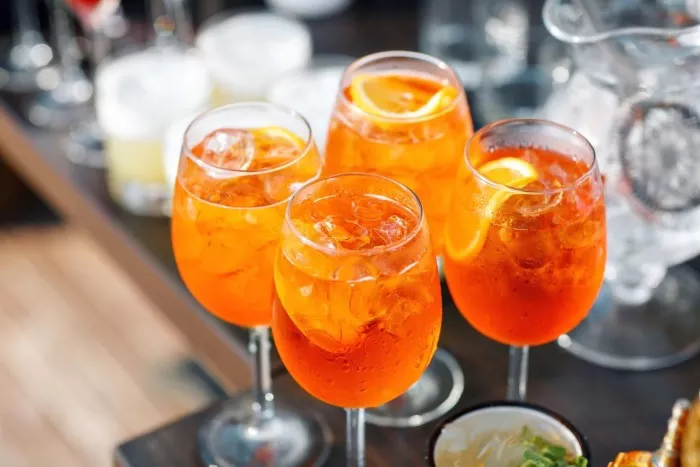Cocktails have an irresistible charm that transcends time and culture, captivating the palates of people worldwide. They hold a unique place in the realm of beverages, blending artistry, science, and history in a single glass. But why are cocktails so good? Beyond their delightful flavors and diverse ingredients, the allure of cocktails lies in their versatility, social appeal, craftsmanship, and sensory experiences.
Versatility in Flavor Combinations and Creativity
One of the foremost reasons behind the widespread admiration for cocktails is their limitless potential for flavor combinations. Mixology, the art and science of crafting cocktails, allows for endless experimentation with various spirits, liqueurs, juices, syrups, herbs, and spices. This diversity creates a spectrum of tastes, catering to a wide range of preferences.
Cocktails offer an amalgamation of sweet, sour, bitter, and savory profiles, often enhanced by the infusion of fruits, herbs, or homemade syrups. From classics like the timeless Martini or Old Fashioned to modern innovations like molecular mixology, the sheer creativity and freedom to concoct unique blends contribute to the question of why cocktails are so good.
Craftsmanship and Attention to Detail
The craftsmanship involved in making cocktails parallels that of an artisan, where precision and skill intertwine. A bartender’s mastery lies not just in pouring and mixing but in understanding the alchemy of flavors. Each ingredient is meticulously measured and combined to achieve a harmonious balance that tantalizes the taste buds. The meticulous attention to detail, from the choice of glassware to the garnishes adorning the drink, elevates the overall drinking experience.
This dedication to craftsmanship is a testament to the artistry behind mixology, answering the query of why cocktails are so good. It’s not just a drink; it’s a crafted masterpiece served in a glass.
See Also: How many types of cocktail methods are there?
Sensory Experience and Aesthetics
The appeal of cocktails extends beyond taste; it encompasses a full sensory experience. The visual allure of a well-crafted cocktail, garnished with precision and presented with elegance, heightens anticipation. The clinking of ice cubes in the glass, the aromatic notes wafting from the drink, and the sensation of the first sip tantalizing the taste buds all contribute to the allure of cocktails.
Furthermore, the ambiance of the setting, the lighting, the music, and the company complement the sensory experience, enhancing the enjoyment of the cocktail. These multi-sensory elements amalgamate to create an experience that resonates deeply, encapsulating why cocktails are so good—they engage all the senses in perfect harmony.
Social Appeal and Bonding
Cocktails hold a profound social significance, fostering connections and serving as catalysts for conviviality. The act of sharing a drink transcends mere consumption; it encourages camaraderie, conversation, and celebration. Whether in a cozy speakeasy, a bustling bar, or the comfort of one’s home, cocktails facilitate social interactions, bringing people together in a shared appreciation for the libation’s charm.
Moreover, the ritualistic nature of cocktail preparation and presentation sparks conversations and builds a sense of community. It’s this social appeal that adds to the magnetic pull of cocktails, emphasizing why they are so good—they serve as a bridge connecting individuals through shared experiences.
Historical and Cultural Significance
Delving into the historical roots of cocktails unveils a tapestry interwoven with cultural influences and historical narratives. Cocktails have evolved through time, shaped by diverse cultures, and influenced by global trade and migration. Each cocktail carries a story—a narrative that reflects its origin, the era it emerged from, and the cultural context that birthed it.
Whether it’s the Margarita tracing its origins to Mexico or the Martini symbolizing elegance and sophistication, cocktails encapsulate cultural histories in each sip. This historical depth and cultural significance contribute significantly to why cocktails are so good—they are not just beverages but encapsulate stories and traditions passed down through generations.
Conclusion
In conclusion, the allure of cocktails goes far beyond their flavors; it encompasses a harmonious blend of versatility, craftsmanship, sensory experiences, social appeal, and cultural significance. The intricate balance of ingredients, the artistry of presentation, and the stories they carry contribute to their universal charm. Cocktails aren’t merely drinks; they are embodiments of creativity, culture, and conviviality, leaving an indelible mark on the world of beverages and answering the perennial question of why cocktails are so good.


